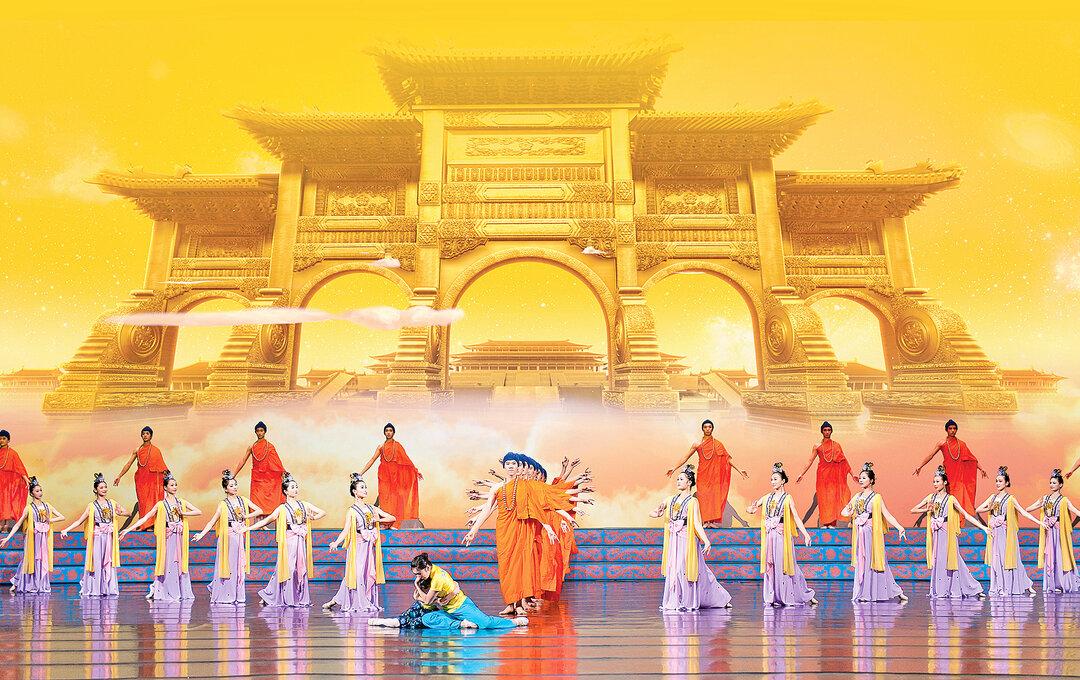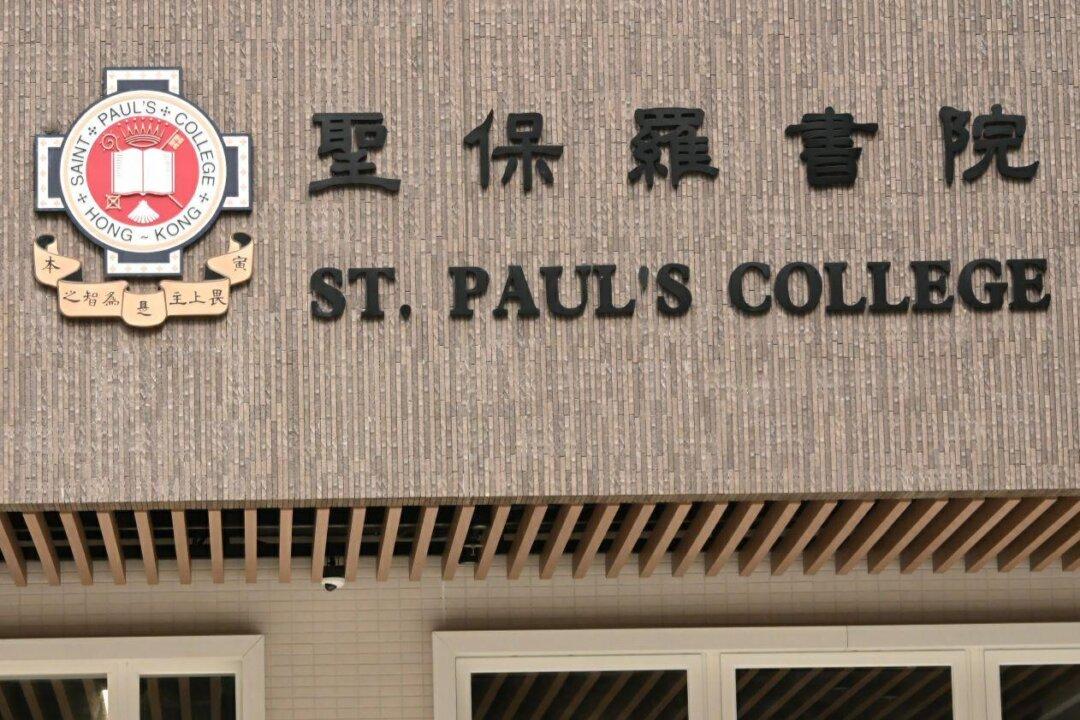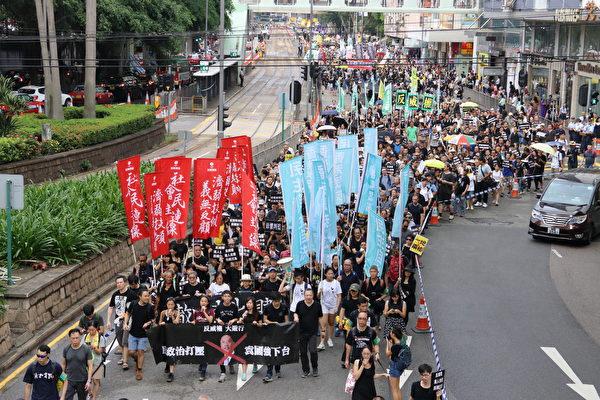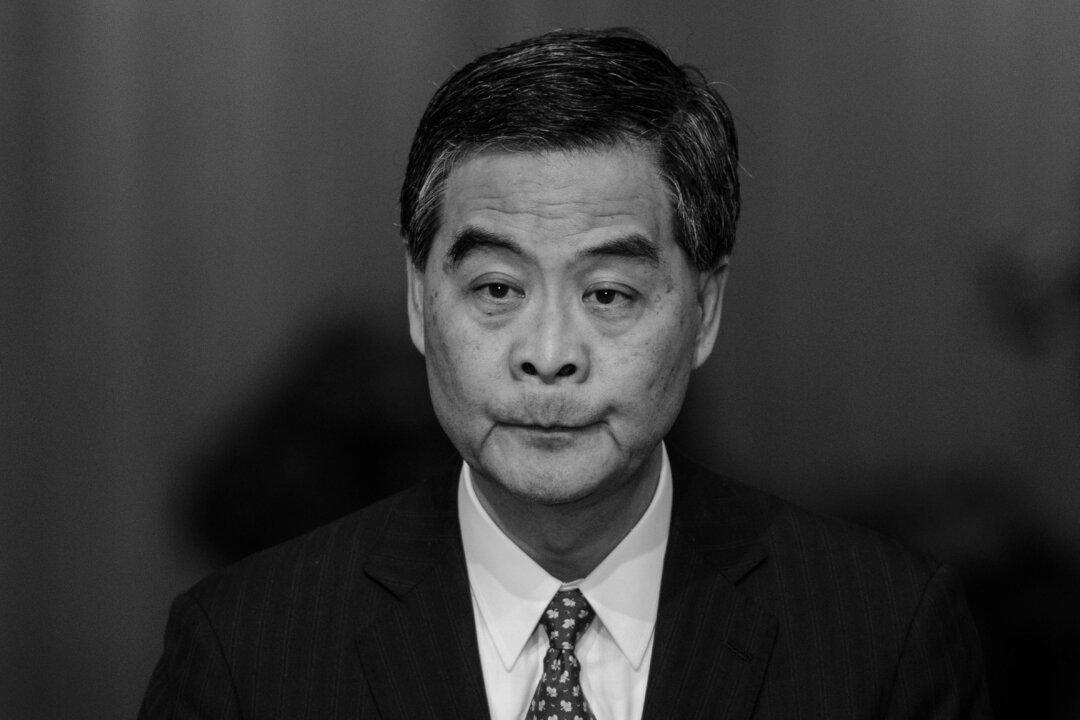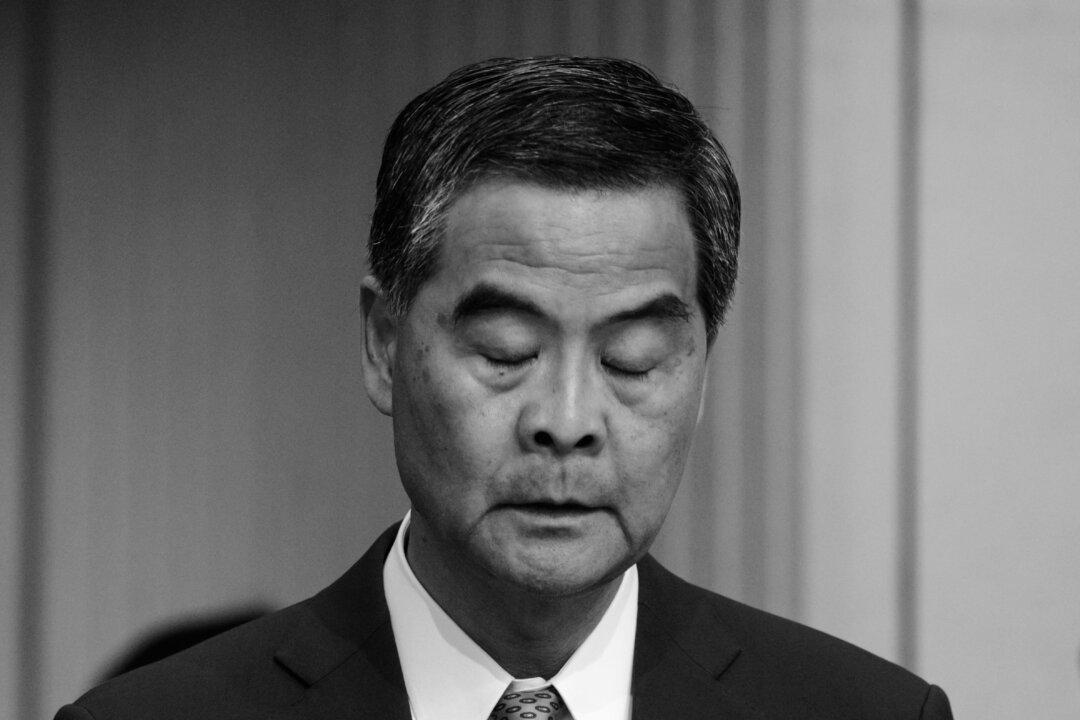A resounding gong is struck, and the stage curtains lift to scenes from the heavens. For the next three hours, theatergoers experience the essence of China’s 5,000 year civilization—the grandeur of imperial courts; the energy of ethnic folk dances; and vignettes from famous Chinese classics—through the art forms of music and dance.
Shen Yun Performing Arts, a classical Chinese dance company based in New York, has performed in major concert venues around the world since 2006. Each year dozens of shows in Taiwan, Japan, and South Korea are sold out, according to organizers.
But Shen Yun, which is independent from the Chinese regime, has never been able to perform in Hong Kong, the semi-autonomous Chinese city and international financial hub. Once, visas for Shen Yun staff were cancelled at the last minute. Local Shen Yun organizers are repeatedly told by the Hong Kong government that theaters are not available.
This year, the local organizers are running a signature campaign to gauge and demonstrate popular support for Shen Yun’s arrival in Hong Kong. Several pro-democracy Hong Kong lawmakers and celebrities have joined the call.
Hong Kong Hurdle
Shen Yun states that its mission is to revive traditional Chinese culture through classical Chinese dance, according to the company’s official website. Shen Yun’s five dance companies are currently traveling the globe for the 2017 tour.
Theatergoers, including award-winning actors, producers, musicians, and artists, describe Shen Yun as “uplifting,” “spectacular,” and “absolutely brilliant.” Epoch Times has covered audience feedback for Shen Yun since the company’s inception.
Shen Yun’s traditional Chinese ethos appears to resonate in Asia, and particularly in Taiwan, the Chinese island-state that inherited and preserved part of China’s cultural heritage. In 2016, a total of 37 shows were scheduled in Taiwan, and 35 of them were fully booked.
The Hong Kong organizers of Shen Yun, the Hong Kong Falun Dafa Association and the Hong Kong branch of New York-based Chinese language broadcaster New Tang Dynasty Television, have tried for years to bring Shen Yun to the city. But the Hong Kong government has thrown one roadblock up after another.
In 2010, Shen Yun was supposed to perform in Hong Kong after local organizers managed to book the Hong Kong Academy for Performing Arts for a week. But the Hong Kong government withdrew visas from six key production staff at the last minute, and Shen Yun was forced to cancel.
The organizers took the government to court over the visa cancellation and won the judicial review of the case. The government, however, continues to block Shen Yun from performing in the city through other means.
“Between March 2008 to April 2016, we’ve submitted a total of 147 applications for a concert venue to Hong Kong’s Leisure and Cultural Services Department,” said Kan Hung-cheung, a spokesman for the Hong Kong Falun Dafa Association, the non-governmental association that invites Shen Yun and handles booking and some local logistics. “But we were always told by the Department: ‘Your application can’t be processed, but we can’t give any reasons.’”
The scale and animated backdrops used in Shen Yun performances means that the shows can only be held in larger sized venues. According to Kan, there are only 6 or 7 auditoriums in Hong Kong that meet Shen Yun’s requirements, and all of them come under the oversight of the Hong Kong government.
Meanwhile, the government’s criteria for renting its auditoriums is opaque.
In 2002, rental priority was based on a grade system determined by the artistic level of a company’s production, the company itself, and whether or not the company had held performances in the auditoriums. In 2009, the government came up with a venue partnership scheme, where up to 20 artistic organizations were given priority booking with their “partner” venue.
The Hong Kong government, however, never discloses the grades it assigns to artistic companies, according to Kan Hung-cheung. Those seeking to book venues also cannot find out the available slots for performances. Kan met government officials three times in April 2016 to request booking details and schedules for five theaters over the past three years, but was only handed broad booking frequency figures of some theaters.
Hong Kong government officials tell Shen Yun organizers that “there is a huge demand for venues.”
Yet Sha Tin Town Hall, one of the venues that can host a Shen Yun performance, is only booked 14 out of 31 days this month. The shows that have been scheduled include six Cantonese operas, local plays and school productions, one song and dance troupe from mainland China, and a choir performance hosted by a Chinese enterprise. One member of the choir told Epoch Times privately that activities or shows hosted by mainland groups can very easily secure venue bookings from the Hong Kong government.
Kan Hung-cheung said: “Many venue operators told us that Shen Yun is excellent, and feel that Shen Yun should perform in Hong Kong. But they can’t do anything about it because they have superiors, and their superiors report to those even higher up, and someone up there is blocking Shen Yun.”
Kan said that several lawmakers in Hong Kong’s Legislative Council whom the Shen Yun organizers approached tried negotiating with the Hong Kong government, but weren’t able to make any headway on the issue. One lawmaker revealed that some government officials even said to “not make things difficult” for them.
Support
Hong Kong Shen Yun organizers are currently running a signature campaign to bring the show to the city, and have received encouragement from prominent members of the public.
Wu Chi-wai, the chairman of Hong Kong’s Democratic Party, said: “Shen Yun Performing Arts is an internationally renowned and artistically very accomplished organization, and Shen Yun has received high praise in the various countries it tours. To uphold the freedoms enshrined in Hong Kong’s Basic Law, I feel that the Leisure and Cultural Services Department should approve or invite Shen Yun to Hong Kong.”
Simon Chu, the former director of the Government Records Service, said: “Traditional arts and dance performances can be enlightening for Hongkongers and ethnic Chinese people in that these performances broaden their understanding of their ethnicity. Of course I hope that the Leisure and Cultural Services Department opens up a bit and not be so narrow; they should allow Shen Yun from the United States to perform in Hong Kong.”
Joseph Zen, the former Cardinal of Hong Kong who is vocal on human rights issues, said: “I feel blessed because I got the chance to watch Shen Yun in Taiwan. I really enjoyed the performance, and I feel that the show will be very worthwhile for others… Hong Kong, being under ‘one country, two systems,’ should be open, so I feel that there shouldn’t be too much political considerations because the performance is definitely worth seeing from the cultural aspect.”
